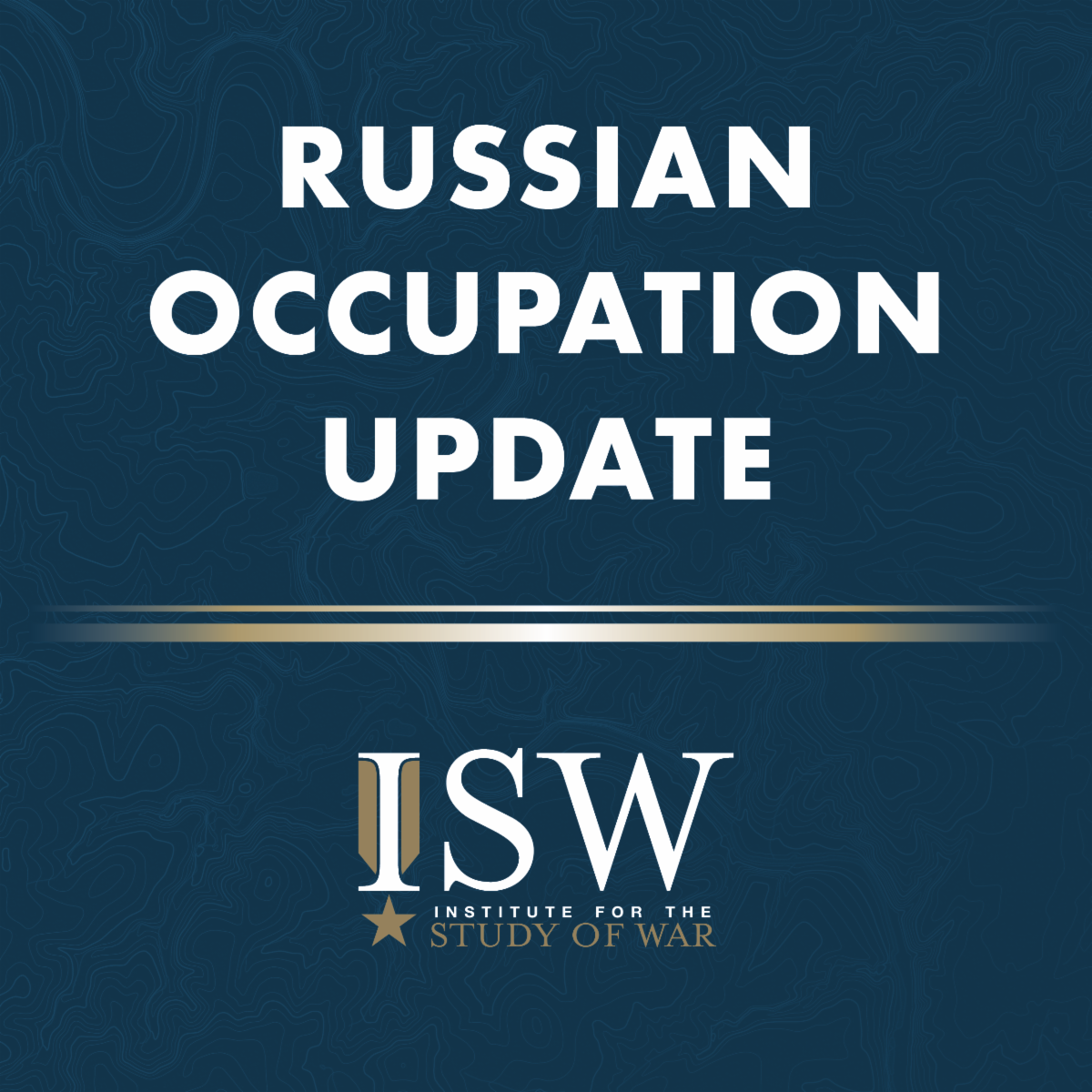Occupied Crimea is poised to face a severe water crisis in the coming months, a crisis that the Russian occupation of Crimea has precipitated and which ongoing Russian mismanagement and resource misallocation will exacerbate. Head of the Department of Chemical Technologies of Water Use at the Russian-founded Crimean Federal University Ilya Nikolenko stated in an interview with Russian media on June 5 that reservoirs in occupied Crimea lost 11 million cubic meters of water in May 2025 alone. Nikolenko noted that water reservoirs in Crimea are operating at about 50 percent of maximum volume, compared to 75 percent at the same time in 2024. Nikolenko warned that the current rates of the depletion of Crimea’s water reserves presage an acute water crisis reminiscent of the 2020-2021 water shortages. Radio Free Europe/Radio Liberty Crimea Service Krym Realli reported on June 6 that the Bilohirsk Reservoir (in southeastern Crimea about 35km east of Sevastopol) began to rapidly lose water in recent weeks due to the onset of hot weather and resulting increased water consumption throughout Crimea. Russian occupation officials are clearly aware of the looming water crisis, but are nevertheless continuing efforts to attract Russian tourists to Crimea for the summer season. Head of the Committee on Ecology and Natural Resources in the Crimean occupation parliament Svetlana Shabelnikova claimed that Russia will provide Crimea with 60 percent of its needed drinking water this summer despite supply challenges, and that resort towns in southern Crimea will be “supplied drinking water without interruption.” It remains unclear how the Russian occupation administration intends to supply the 40 percent shortfall of potable water, but Shabelnikova’s statements make it evident that Russian authorities are prioritizing water supply for tourist hotspots, potentially leaving hundreds of thousands of people who do not live in or near resort towns without reliable water supply.
Russia as a belligerent occupying power is obliged by international law to provide for the health of the population it occupies, which extends to the provision of basic goods and services such as drinking water. Ukraine initially shut off water supply to Crimea via the North Crimean Canal as a form of sanction when Russia invaded and annexed Crimea in 2014. Russia then struggled with maintaining water supply, particularly as it inundated the peninsula with Russian servicemembers and re-located Russian civilians to Crimea, all of which added strain on already limited water resources. Since the full-scale invasion of Ukraine in 2022, Russia has mismanaged water infrastructure in Crimea, failed to invest in alternative water sources, continued diverting water resources to military needs, and mired water projects corruption scandals. Russia’s June 2023 destruction of the Kakhovka Hydroelectric Power Plant (KHPP) dam further severely limited water supplies to Crimea. Despite mounting water concerns, Russian officials continue to insist on bringing Russian tourism to the occupied peninsula, which will likely further stretch scarce water resources and disproportionately impact Ukrainian residents.
Key Takeaways:
- Occupied Crimea is poised to face a severe water crisis in the coming months, a crisis that the Russian occupation of Crimea has precipitated and which ongoing Russian mismanagement and resource misallocation will exacerbate.
- Russia is intensifying filtration processes against Ukrainians, greatly restricting their freedom of movement and their ability to leave occupied Ukraine.
- Kherson Oblast occupation officials continue efforts to consolidate control over the oblast’s agricultural output for Russia’s economic gain.
- Ukrainian President Volodymyr Zelensky approved sanctions on June 10 targeting numerous Russian officials and organizations for their role in the deportation and adoption of Ukrainian children. The sanctions list supports ISW’s assessment of the links between high-ranking Kremlin officials, Russian youth organizations, and the widescale deportation of Ukrainian children.
- The Russian “University Shifts” program has begun summer sessions, facilitating the deportation of Ukrainian children and teenagers to participate in university classes at schools throughout the Russian Federation.
| 




 [ISW] 러시아의 공세 캠페인 평가, 2025년 6월 12일
[ISW] 러시아의 공세 캠페인 평가, 2025년 6월 12일
 [ISW] 러시아의 공세 캠페인 평가, 2025년 6월 11일
[ISW] 러시아의 공세 캠페인 평가, 2025년 6월 11일